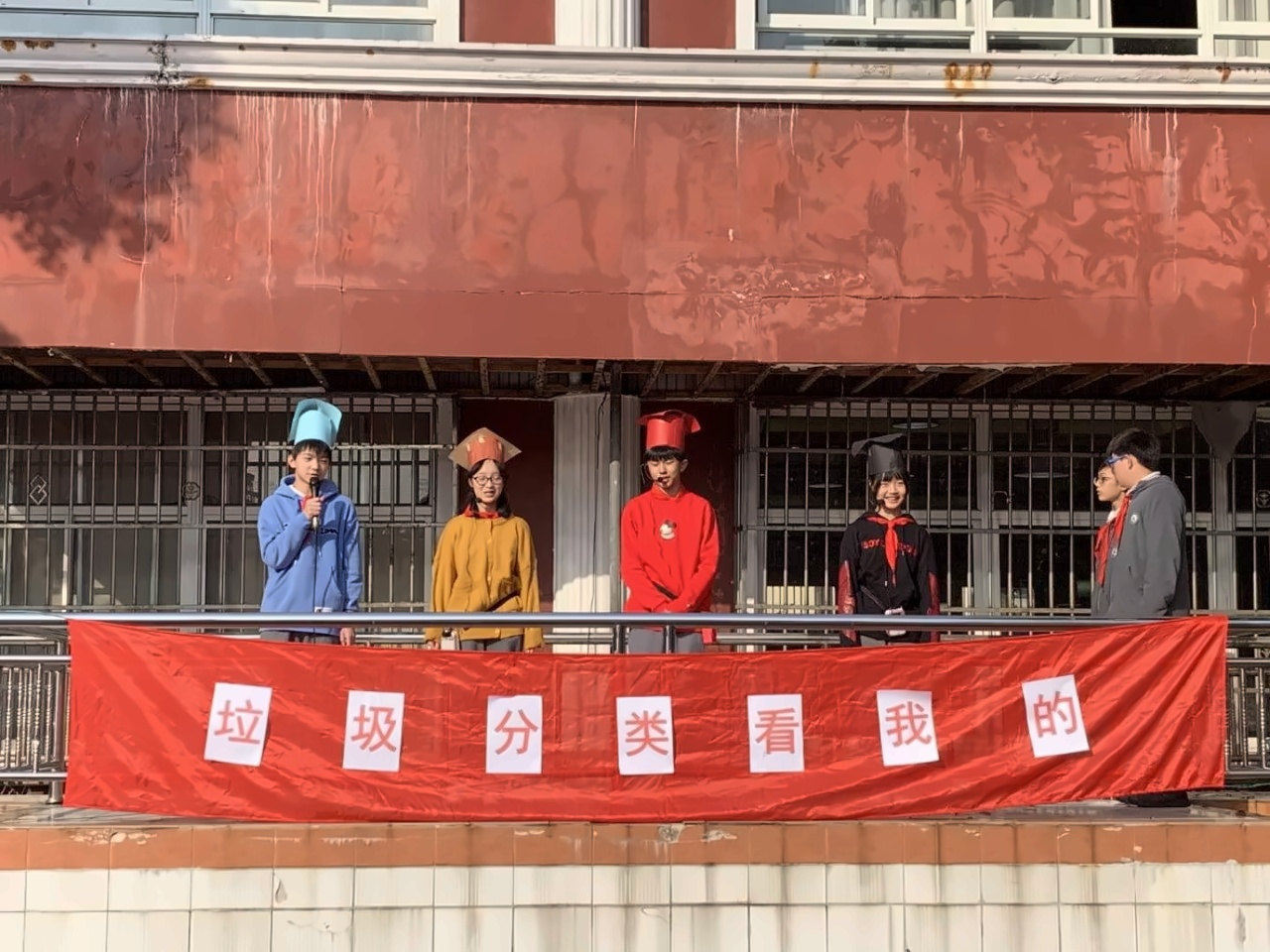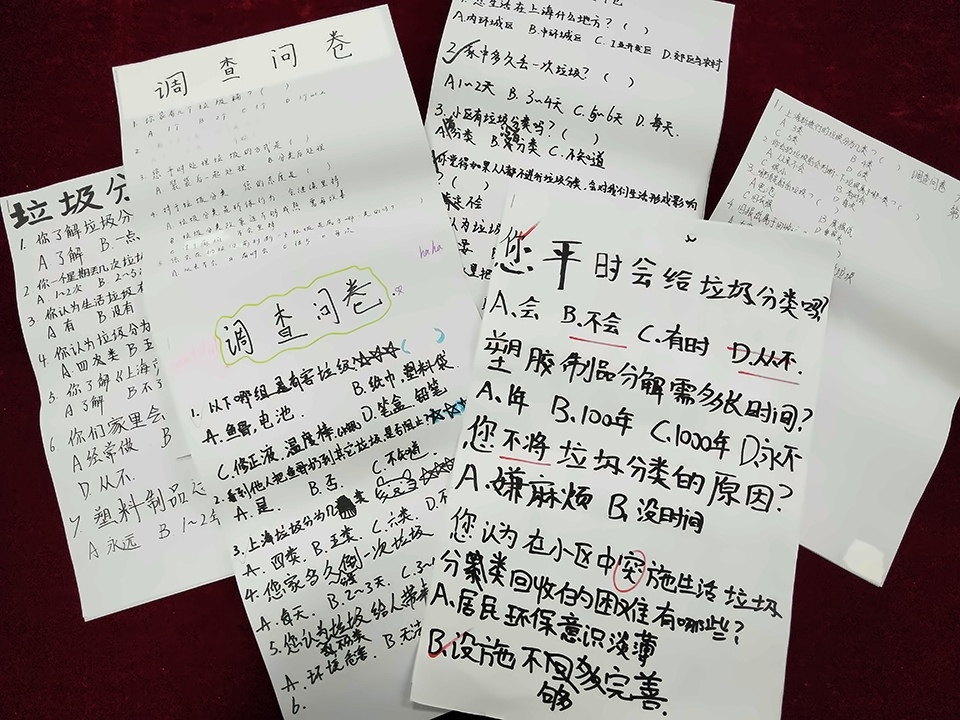全國統(tǒng)一學(xué)習(xí)專線 8:30-21:00
來源: 上海燎原雙語學(xué)校 編輯:佚名
2019年3月8日,上海燎原雙語學(xué)校國際部MYP項目課程部隆重舉行了“垃圾分類新時尚”服務(wù)課程的啟動儀式。“濕紙巾是干垃圾還是濕垃圾?”“樹葉是干垃圾還是濕垃圾?”這些看似簡單的問題讓學(xué)生撓了頭。MYP老師由此展開,讓學(xué)生們深刻地體會了垃圾分類的重要性,以及垃圾如此分類的科學(xué)道理。同學(xué)們對垃圾分類展現(xiàn)了濃厚的興趣。
On March 8th, Liaoyuan Bilingual School MYP held the launching ceremony of our service project, "New Fashion of Garbage Classification". Seemingly simple questions such as, “is wet tissue dry trash or wet trash?”, or “are the leaves dry trash or wet trash?”, can be very confusing. From these questions, MYP teachers began to tell students why we need to garbage classification and its scientific basis. The students showed great interest in this topic.

垃圾分類新時尚
2019年1月31日,上海市正式通過《上海市生活垃圾管理條例》,標(biāo)志著垃圾分類強(qiáng)制時期的到來。條例將通過法律的強(qiáng)制性,推動上海市生活垃圾分類。
On January 31th, Shanghai People’s Congress officially passed the Shanghai Household Waste Management Regulation, marking the arrival of garbage classification for the city. The regulation requires mandatory household waste classification.
上海市燎原雙語學(xué)校作為IB –MYP候選學(xué)校,課程框架中*含服務(wù)類課程。恰逢**大力推行垃圾分類,我們就選用了“垃圾分類”作為探究的主題。本學(xué)期,我們將會通過MYP服務(wù)課程,讓學(xué)生們靈活運(yùn)用所學(xué)知識,發(fā)現(xiàn)生活中存在的問題,探究解決問題的方法,進(jìn)而服務(wù)于社會。
As a candidate school of IB – MYP, service projects are a part of the LYBS curriculum. To support Shanghai household garbage classification, we chose garbage classification as the topic of our service project. With the MYP service course, students will find real life problems, and inquire about solutions with what they’ve learnt about serving the community.
學(xué)習(xí)了《上海市生活垃圾管理條例》,學(xué)生們著手制作四類垃圾桶上的標(biāo)識。別看一句“制作垃圾分類標(biāo)識”,其實有很大的學(xué)問!不僅體現(xiàn)了同學(xué)們對垃圾分類的充分認(rèn)識,還鍛煉了同學(xué)們創(chuàng)作和審美的能力。
After studying the Shanghai Household Waste Regulation, the students designed garbage bin signs to promote garbage classification correctly. Making signs are a worthy challenge for students, because it not only reflects the students' full understanding of garbage classification, but also exercises their creative and aesthetic abilities.
學(xué)生們進(jìn)行了角色扮演,用三句半、倡議書等形式倡導(dǎo)學(xué)生們正確將垃圾投放到干垃圾,濕垃圾,可回收物和有害垃圾這四類垃圾桶中,減少使用一次性物品和塑料袋。學(xué)生志愿者們走入社區(qū)宣傳垃圾分類,鼓勵大家加入到生活垃圾分類的隊伍中來。
Students did role plays, wrote initiatives advocating other students to throw trash into the right garbage cans: dry waste, wet waste, recycling waste, and hazardous waste. We advocated reducing the use of disposable goods and plastic bags. Moreover, students went into the community as volunteers to advocate garbage classification, and to encourage everyone to join the household garbage classification.

調(diào)查問卷
MYP的學(xué)生們?yōu)榱松钊胩骄烤用駛冊诼鋵嵣罾诸悤r遇到哪些困難,特別制作了調(diào)查問卷,從意識和行動等各方面切實發(fā)現(xiàn)居民落實生活垃圾分類投放困難的原因。
In order to further inquire about the difficulties of implementation of household garbage classification, MYP students made a questionnaire to find out the reasons for residents' difficulties, ranging from action to awareness issues.
本學(xué)期MYP項目服務(wù)課程——垃圾分類,其的目的在于鍛煉學(xué)生的探究能力和動手能力,讓學(xué)生們體會生活中的科學(xué),培養(yǎng)孩子善于發(fā)現(xiàn)問題,提出問題以及解決問題的能力,從而讓他們更主動學(xué)習(xí)科學(xué)知識,增強(qiáng)人文情懷。最終學(xué)生們會用自己的方式宣傳生活垃圾分類,提高環(huán)保意識,助力上海市垃圾分類新時尚。
This course develops students' inquiry ability and practical ability, lets students experience science in life, cultivates their ability to find problems, and puts forward problems and solutions, so that they can be interested in learning scientific knowledge and developing humanistic feelings. Finally, students will use their own ways to publicize the household garbage classification, raise people's awareness, and support garbage classification in Shanghai.
上海燎原雙語學(xué)校報名、校園參觀及了解招生動態(tài),請: ,或通過下方報名通道登記。